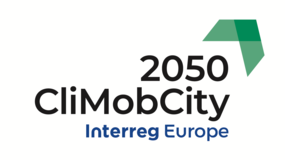The 2050 CliMobCity project partners discuss the progress in generating input data for the mobility modelling effort and information that can be used later on to be able to have a good interpretation of the model outcomes later on. Further more, the progress on the actual modelling process will be discussed as well as some preliminary results.
As part of the interretional learning process, the project partners will discuss the measure packages, their potential effects on mobility and, eventually, on CO2 emssions. To this end, examples of measure packages of other cities (not participating in this project) will be discussed as well.
During the virtual Side Visit, an introduction will be given on the spatial and mobility development of the City of Leipzig and its surroundings, and the backgrounds of the Leipig Mobility Strategy.
Specific attention will be given to the 'Mobility Stations' concept.
During the Seminar Session, two specific topics will be discussed that were identified during earlier meetings.
First, a guest introduction will be given on the relevance of (taking into account) urban freight distribution when thinking about reducing CO2 emissions. Also, some suggestions for possile measures will be given.
Next, the complexity of modelling 'new mobility concepts', including shared services, will be addressed. Traditional transport models are not well able to extimate future use as no past data is available and also often used modelling techniques seem less adequate to model these modes. Alternative approaches will be discussed.


